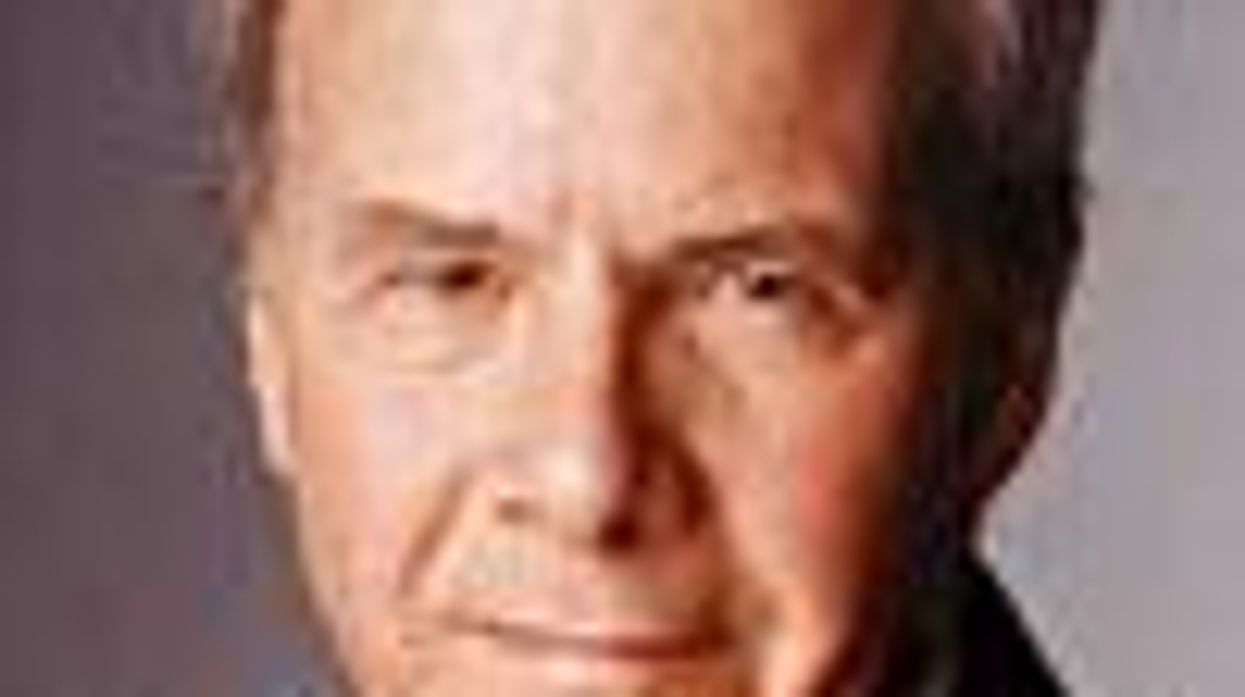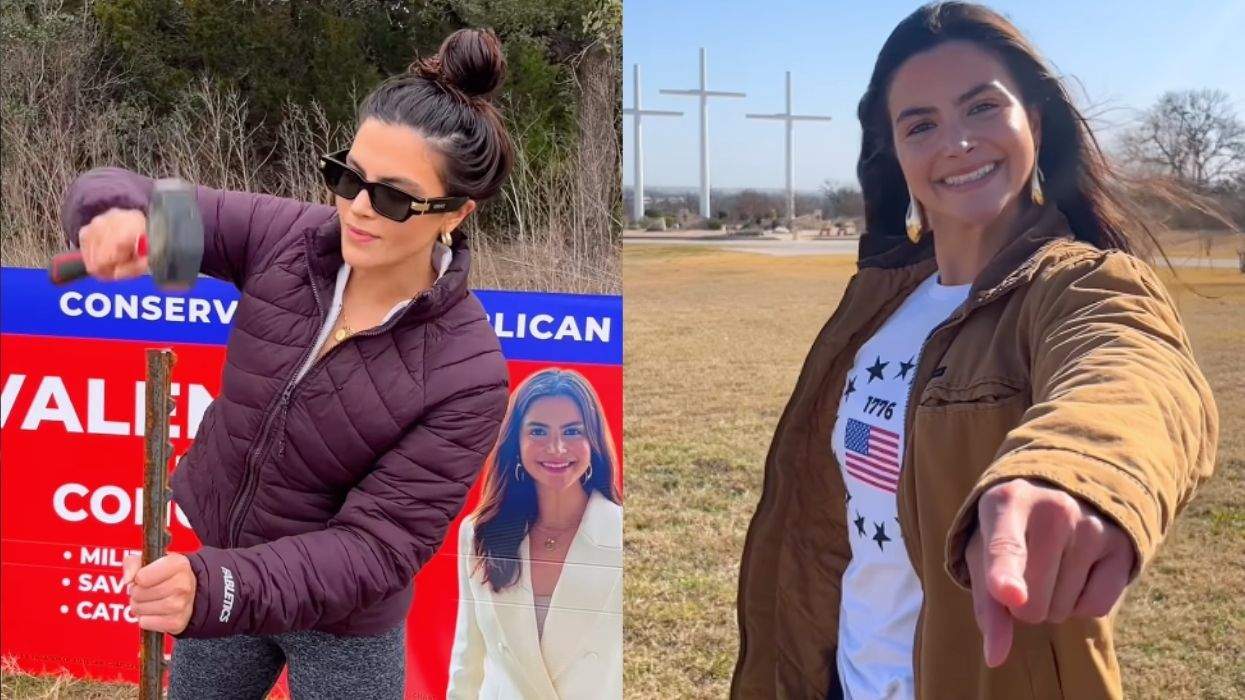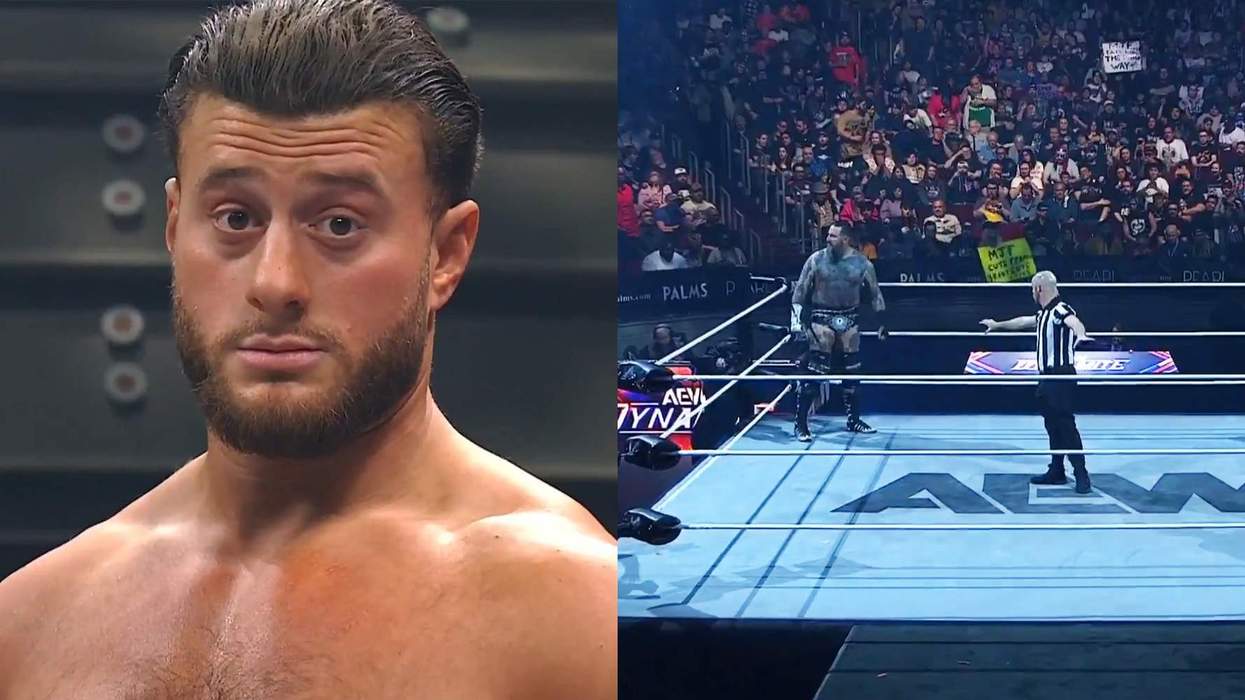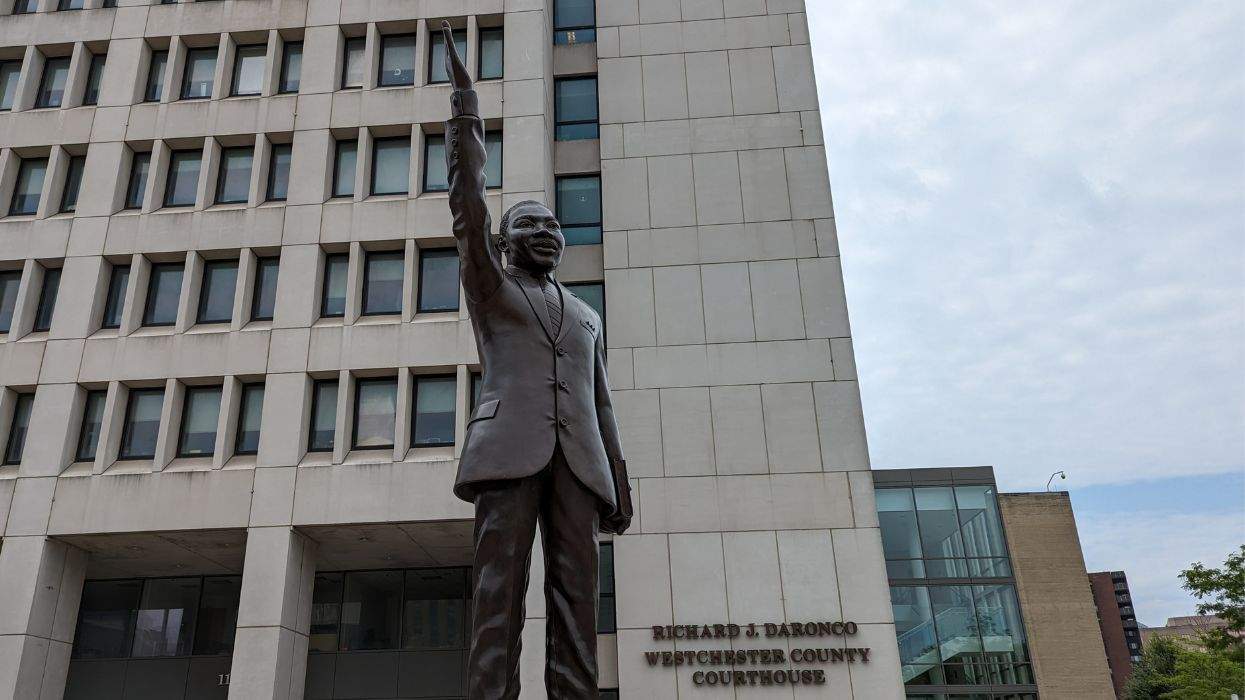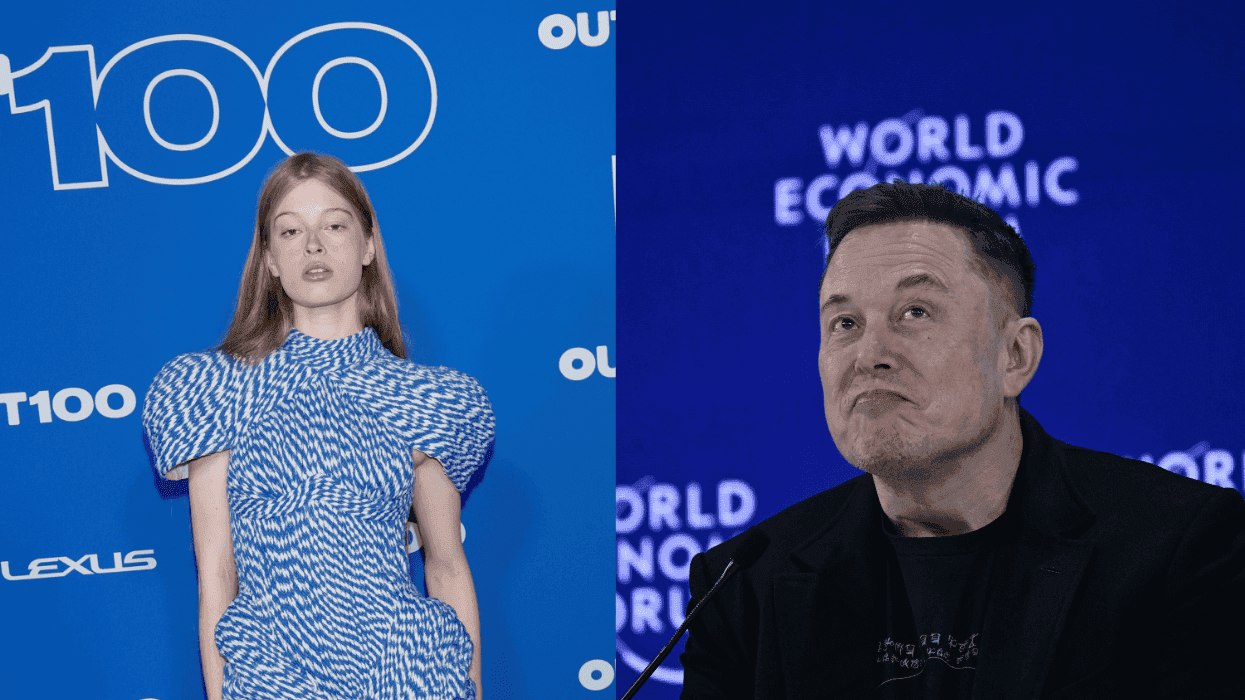This November, Tom Brokaw royally pissed off Frank Kameny. In Brokaw's book Boom! Voices of the Sixties, an epic exploration of the political, cultural, and socioeconomic events of 1963 to 1974, the former anchor of the NBC Nightly News made nary a mention of the gay rights movement. Naturally, the man who coined "Gay Is Good" in 1968 would find that unacceptable. In a letter to Brokaw and his publishers at Random House, Kameny wrote, "I write with no little indignation at the total absence of any slightest allusion to the gay movement for civil equality in your book.... Mr. Brokaw, you have 'de-gayed' the entire decade."
He's right. There's no mention of the Stonewall riots in 1969 or the removal of homosexuality from the American Psychiatric Association's list of mental disorders in 1973. There's no mention of Elaine Noble, Harvey Milk, or, for that matter, Frank Kameny. There are, however, reasons, as we found out when we called up Brokaw. Read on.
Let's cut to the chase. Why is the gay rights movement missing from Boom?
Obviously I feel bad. It was not that it wasn't on my mind, but it was not the defining history of the '60s. I was trying to do the five big pillars, which in my judgment were race, war, politics, women, and culture. There were a number of important movements that also grew out of the '60s and certainly gay liberation was important among them. I struggled with the absence of any real reference to Hispanic political power. In California, for example, there was, what we used to call in those days, the Chicano movement, which organized a big anti-war demonstration and that was kind of the foundation of what became a considerable Hispanic political situation. Having said all that, I think it was a mistake not to make reference to Stonewall. And we're going to do that in subsequent editions.
I went back through Charlie Kaiser's book on 1968, and he makes one reference--one--about the consequences of 1968. He makes one line referring to gay liberation and the gays who began to live more openly and honestly after the Stonewall rights of 1969. That's it. I'm not using that as a defense, but in reference to that particular period, I think it came along a little later.
My own strong feeling was that the gay liberation movement really got national attraction in the truest sense of the word later in the '70s, in the '80s, and especially in the '90s. Roy Aarons was a very good friend of mine in California, and when I left there in 1973, Roy was not yet out. A couple of years later he was in touch with me about the National Lesbian & Gay Journalists Association, which he didn't start until 1990. It was not an attempt to slight what became a very important movement, but I just had to make some tough choices. I feel bad that people feel that I deliberately slighted them--that was not my intention.
Okay, but nothing about gay rights?
That's not entirely fair, it was glancing. Linda Greenhouse has quite a poignant description of not knowing anybody gay in 1968 in her class at Harvard. They had their 25th anniversary and suddenly the phone lines light up from gay members of her class she didn't realize were gay, because Colin Powell was going be the speaker. In my passage on Dick Cheney in which he says he'd kind of like to go back to the old ways, I point out that his daughter Mary would not have been treated well at all under the old ways.
In the '60s did the gay movement seem more an issue of sexual liberation rather than civil rights?
On civil rights, I thought very strongly about primarily African American rights. I mean, we had institutionalized, legalized discrimination against the fundamental rights of citizenship. Gays have never been denied the right to vote. They're not told to go to a separate drinking fountain. They were not told they couldn't stay in a motel if they crossed the state line. The terror the blacks lived in, north and south, that really sparked the Civil Rights Movement was a different order than what happened with gay liberation. As far as the sexual liberation, it was not, it seemed to me, as inclusive as the women's movement, which was the first to come along in terms of sexual liberation.
Do you think success is harder to come by in the women's movement, with all its implications to sex, than the civil rights movement?
I haven't thought about it in quite that fashion, but when it comes to women, we began to do the right thing in the '60s and the '70s and we've made enormous gains. I'm the father of three daughters and they're all highly trained professionals, two of them are mothers, and the other one wants to be at some point. The daunting task of being a mother, a wife, and an independent career or professional person is really taxing. I'm witness to that all the time with them. These are tough times and these are very tough issues that in my judgment are not getting enough attention.
You were working for NBC out of Los Angeles in 1967, coincidentally when The Advocate was founded. Did you have any experience with gay activism?
I remember The Advocate coming online. I've known Larry Kramer for a long time. Later in the '70s, maybe the early '80s, he stopped me on the street in New York one night and talked to me about this god-awful disease that was running through the gay community. And NBC was the first network to do an AIDS documentary, I think. I've always credited Larry with bringing that to my attention.
It seems your five pillars are movements that gained widespread visibility in the 60s. With that thinking, perhaps the 1980s and the AIDS crisis was our boom.
I actually thought that the AIDS gave the gay movement a certain different, dramatic, and tragic element, but there were lots of other things going on as well.
In the book, you write, "The eve of 2008 is not exactly the Sixties all over again." We have an unpopular war, an unpopular president, and a Civil Rights Movement on our hands. What's different?
In the '60s, there wasn't a day that went by that you didn't have somebody at the barricades. Or somebody marching into the south; and redneck cops with cattle prods and dogs and horses and nightsticks; and kids disappearing in Mississippi, who had gone down there to do the work of that time. So it's both quantitatively and qualitatively different, I think. The work that is now done is much more in the legal area and, with the exception of gay marriage, not nearly as public or as widespread as it was at that time.
I think the '60s were really seismic and they opened up a lot of fissures in the kind of national, social, consciousness, and also rearranged landscape in some cases in a not very appealing fashion. And in other cases it liberated this country. We're a much more tolerant society today as a result of going through the '60s. All the nerve endings were exposed in the '60s and they're not now. It doesn't mean [today's movement] is insignificant. I don't think that there is a community, corporation, or academy in America that does not now have a real sensitivity to gay rights.
So how does change happen?
What I've been saying as I go around the country, you effect change in this country from the ground up. You really have to step into the arena and you have to force the people who come before us asking for our votes to face the tough issues and to deal with them. And to begin to deal with them you have to have constructive, thoughtful dialogues about these issues. And my own impression is that one of the reasons that we have a sharply rising population of independent voters is they are fed up with both parties.
We have real painful issues that people are dealing with, and some of them are personal, and some of them are political, and some of them are cultural, and some of them are economic, but this is a extraordinarily resourceful country with lots of laws that should be able to protect our ability to discuss these in ways that we can all be comfortable doing it.
What I was attempting to do here, however imperfect or inadequately, is to have a dialogue about where we go from here and what we've learned. And that's part of the long curve, as I would describe it, of this country trying to come to grips with some of these lingering issues that still exist out there.
How else have you started that dialogue?
I guess it was in the election of 2004, I had gotten so tired of the horse race that I went off and covered issues. I went to Atlanta and found a young woman who was out, she was a lesbian, and she was a product of a biracial marriage. Her dad was a white civil rights worker who went south, married a black woman, and had to deal with miscegenation issues. She moved to Atlanta, and discovered at some point in her life that her sexual orientation is gay. We talked about the difficulty of working in Atlanta and also dealt with one of the prominent black ministers of a mega church, who thinks that homosexuality is a sin. By putting that on the air, we tried to kick start an enlightened discussion about the issues.
Is real revolution possible?
When I talk to young audiences now, I say, you cannot lead only a virtual life. You're not going to find the solution to bigotry in the delete button. You're not going to reverse global climate change by hitting back space. Get out there and get your boots on the ground. And that's what's missing I think. Why don't we have people in the streets over the war in Iraq? It's simple; it's the draft. If there were a draft they'd be out there, because there is self-interest.
But you know what else happened in the '60s, which is interesting. There was economic freedom that we don't have now. Young people that are coming out of college are terrified about finding a job. Then if they find a job, they wonder, how in the hell am I going to afford a house for $800,000? The inflationary cycle is brutal. In the '60s you had that wave of prosperity after World War II. Parents were inclined to indulge their children. Kids go off to school and decide to, in some instances, indulge in stuff, and they could still get a check every week from their parents. Now if you go off to college, you're going to emerge with $40,000 in debt.
